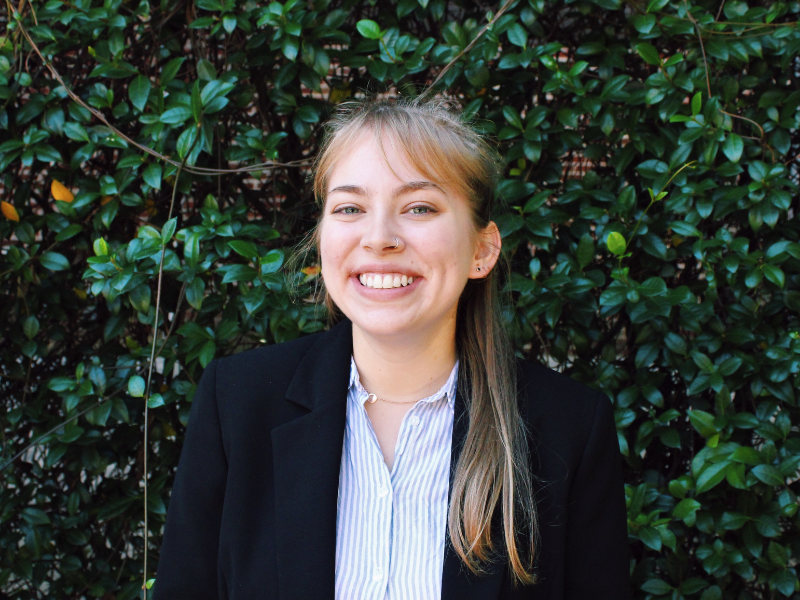By Lauren Gaines (LA ’20)

Photo of Meghan Bush
The phrase “To infinity and beyond!” comes to mind as one learns of the incredible work alumna Meghan Bush (SSE ’20, *21) is doing as one of the newest research electrical engineers at NASA’s Glenn Research Center. A member of the storied Photovoltaics and Electrochemical Systems Branch, she tests and develops the solar array systems that power satellites, rovers, and lunar and Martian habitats. Bush spends her days on a diverse team characterizing solar arrays in simulated space environments, coordinating high-altitude solar cell tests aboard old spy planes or weather balloons, and working with commercial partners to develop the next generation of power systems for future NASA missions.
“NASA has worked and continues to work hard on cultivating a truly diverse environment in every facet of their workforce,” explains Bush. “This, paired with their mission to educate and inspire future generations of space explorers, makes for an outreach-oriented organization that I am very proud to be a part of.”
Before devoting her energy to the intricacies of space exploration, Bush received her Bachelor of Science in engineering physics with a concentration in mechanical engineering, as well as her Master of Science in Materials Science and Engineering degrees from Tulane. A fond memory of her undergraduate years is her experience with Tulane’s Society of Women Engineers (SWE), a Newcomb-sponsored student organization.
“I served as treasurer my sophomore year and then as president my junior and senior year,” recalled Bush. “Getting to lead fun programming, professional development events, STEM outreach, and more was a major highlight of my undergraduate career and built up my confidence as an engineer and a leader.”
When it comes to leadership, Bush believes representation plays a critical role in instilling confidence in young women and girls by putting in front of them women who are accomplishing the very same goals to which they aspire. She also stressed that this newfound confidence could take many forms.
“This could mean speaking up in class, pursuing their niche and nerdy interests, or being unapologetically enthusiastic about what they want to do–confidence in themselves is the goal,” expressed Bush. “Growing up with powerful women role models in STEM means young girls won’t ever have to doubt their place in these fields.”
Bush found Newcomb Institute to be an important hub for community, storytelling, and reciprocal support during her time as a Tulane student, and this emphasis on celebrating and supporting students in all disciplines is what Bush says makes Newcomb special.
“Newcomb helps the women in its community by providing a space to interact, learn from one another, and develop deep connections and friendships,” explains Bush. “Sometimes this looks like providing funding for young engineers to attend an engineering conference and network with professionals in their fields. Other times, it looks like supporting a Bob Ross painting night for some stressed out undergrads. Regardless, Newcomb’s tireless support of its STEM community is invaluable and appreciated.”
